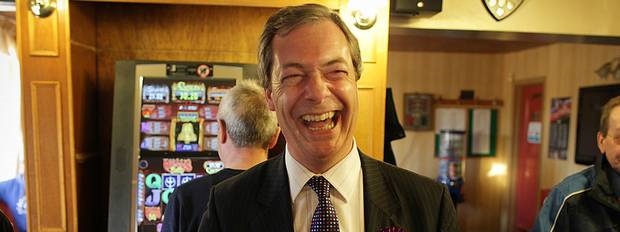CofCC
May 29, 2014

In the last EU parliament, UKIP lead it’s own group with 31 members. The second largest member was the right-wing Northern Italian secessionist party Lega Nord [LN]. As predicted on this website, LN is planning to join a new alliance with the French Front National, the Dutch Freedom Party, and others.
However, a brand new party came in first place in Italy. The fledgling “5 Star Movement” [M5s] got 17 seats. They bill themselves as an “anti-corruption, big tent Euroskeptic party.” They drew votes both from the right and the center. The party is widely viewed as the “protest vote.”
The leader of M5S met with Nigel Farange to negotiate joining UKIP’s Europe of Freedom and Democracy [EFD] group.
A new Conservative/Libertarian party in the Czech Republic gained one seat and is joining EFD.
Meanwhile the Tory party seems to have held onto it’s group by attracting members of two new center-right “soft Euroskeptic” parties from Bulgaria and Slovakia.

Alternative for Germany [AfD] is expected to join UKIP’s group. If M5S also joins UKIP’s group will have at least 58 members, or an 8% chunk of the EU. However, there are numerous other MEPs from new conservative and right-wing parties up for grab. EFD will certainly outshine the Tory parties rival neo-conservative “soft Euroskeptic” European Conservative and Reformists [ECR].
In order to receive a share of EU funds, a group must consist of at least 25 MEPs from at least 7 different countries. UKIP’s EFD will meet the requirements easy.
8% of all MEPs are from parties that have never elected an MEP before.
Meanwhile the Le Pen/Wilders alliance is expected to consist of Front Nation, Dutch Party of Freedom, Vlaams Belang, Austrian Freedom Party, and Lega Nord. This is five parties and 38 members. Other possible allies include Independent Greeks, Swedish Democrats, Congress of the New Right (Poland), Latvian National Alliance, and others.
Three far-right parties will probably remain independent, including Golden Dawn, Jobbik, and the German National Democratic Party.
